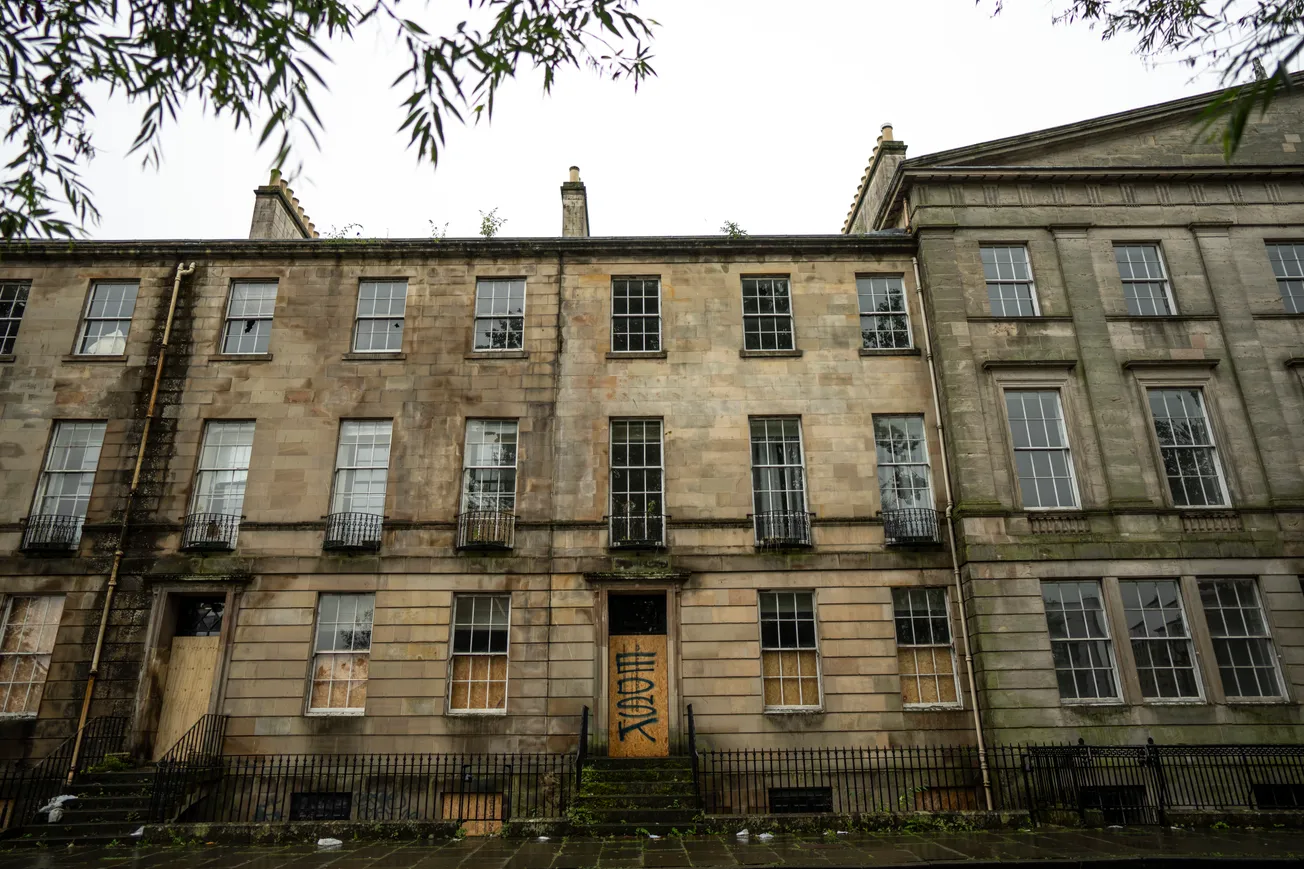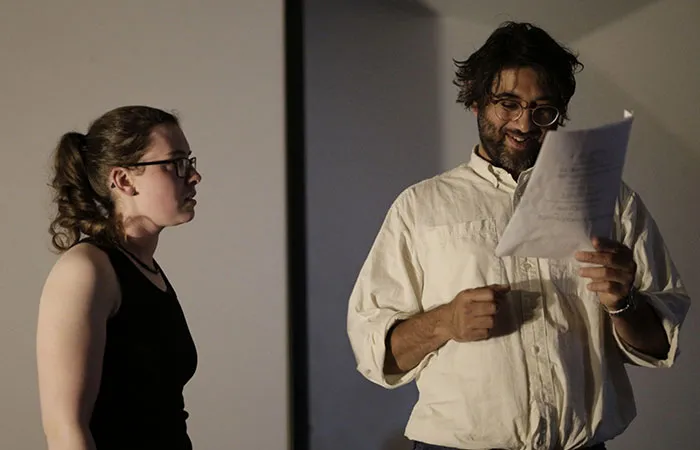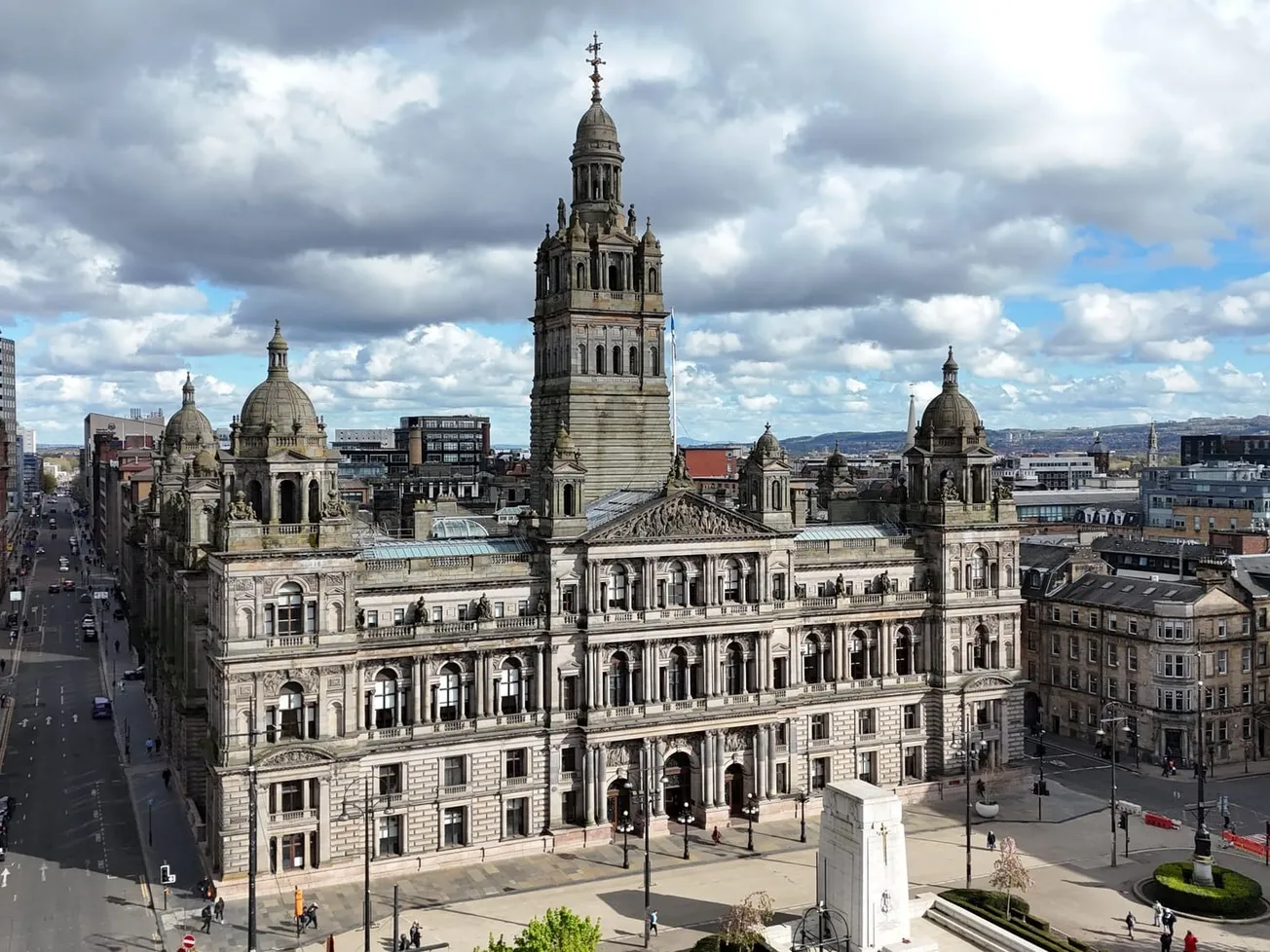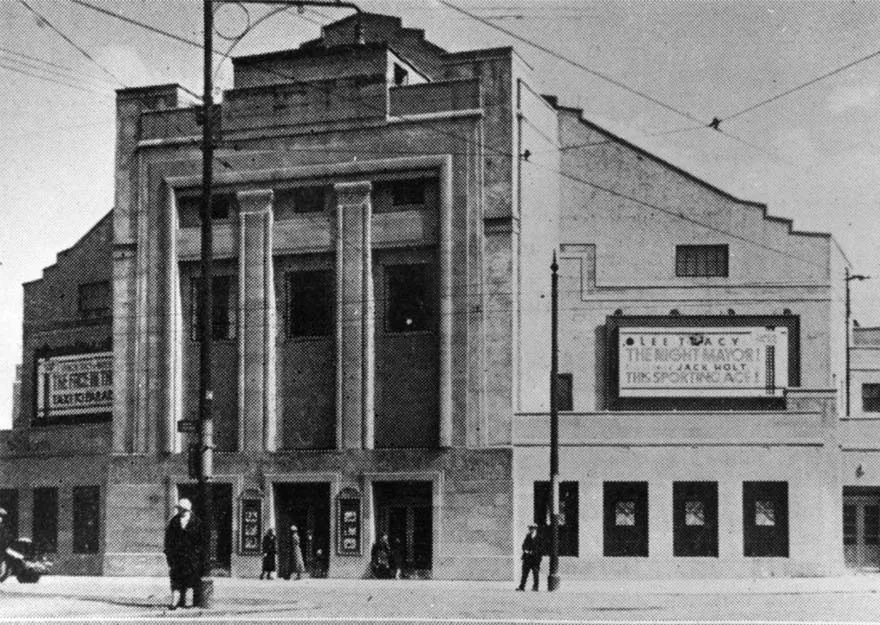A year ago I was lucky enough to be in a position where my partner and I were ready to buy our first home in Glasgow. I approached this task with charming naivety.
I thought we must have gotten lucky; there seemed to be no housing shortage when we began to search. Browsing estate agents’ websites, we were greeted by page after page of lovely properties available in our price range. Quickly, we alighted on a large two-bed, top-floor tenement flat, overlooking leafy Queen’s Park. It was valued at £150,000 in the accompanying home report.
I thought it would be simple. I was vaguely acquainted with demands of Scotland’s ‘offers over’ system but didn’t foresee it to be much of an obstacle. I told myself: ‘just offer 8% above home report, inform the seller that you’re a first time buyer who can move in quickly and intends on actually living in this property, and you’ll have a good chance of being near the top’. My solicitor laughed when I clued them in on the plan.
I brushed off their reaction as being long in the tooth. After all, my offer was fair. Why would I offer tens of thousands of pounds over what experts in the market believed the home was worth?
To absolutely no one’s surprise except my own, I don’t currently live in Queen’s Park — my £162,000 offer didn’t come close to being considered.
There are two main elements to the housing crisis in Scotland. One is shortage: not enough new houses are built. The other is affordability: what’s on the market is increasingly out of reach for large swathes of people. And when it comes to home ownership, two particularly peculiar mechanisms, unique to the Scottish property market, are exacerbating this unattainability. Home reports, let me introduce you to ‘offers over’ and ‘blind bidding’.
In particularly popular areas, prospective buyers must engage in a bizarre, stressful and often disappointing rigamarole which sees them essentially forced into blind auctions. Bidders are asked to stump up — at minimum — tens of thousands of pounds more on a potential property than its advertised market value, in order to have a sliver of a chance of winning it.
In a city like Glasgow, Scotland’s largest with multiple neighbourhoods seen as desirable all the while experiencing a housing emergency, this system runs especially rampant. Anecdotally, we can probably all recount tales of a small flat going for baffling amounts. Thirty percent over home report in G4? Yup. Partick averaging 15% over — that too. For those entering the market, it can be demoralising. But I want to get to the bottom of how this all came about and what it means for Glaswegians today.
It started with the crash
How did we get here? Well, like with many modern economic issues, the tipping point happened in 2008, post-crash. The Scottish Government introduced ‘home reports’ — a handy document compiling key information about a property up for sale — and made sellers provide them to potential buyers before offers are placed.
Included in home reports is a valuation of the property — unlike in England and Wales, the seller doesn’t have to cough up to produce this. This valuation (conducted by a chartered surveyor and assessed via the condition of the property, the area, and the current market), is what banks use to decide mortgages.
But in Scotland, there was already another system in place: offers over and blind bidding. Add to these the mandatory home report and suddenly, the valuation of the house is taken as a starting point, rather than a fixed price. If you like a house, you’re given its value and then invited to submit your absolute best offer on a certain closing date, in a sealed auction. One is then picked from the bunch.
Enjoying this edition? You can get two totally free editions of The Bell every week by signing up to our regular mailing list. Just click the button below. No cost. Just old school local journalism.
As you can imagine, asking a gaggle of people to blindly compete with other buyers for a property can push the eventual purchase price sky high. According to Dr Philip O’Brien at the University of Glasgow, a senior lecturer in Urban Studies and Social Policy, whereas open auctions are a widely-accepted way to determine the market value of something, these sealed auctions can “inflate values” as people are risk-averse and don’t want to lose out on something desirable.
In Glasgow, this combination of the home report being available up front plus a sealed auction has led to “staggering” amounts being offered, says Dean Fleming, a mortgage and protection expert based on West George Street. He says the current system “favours the rich and people who’ve got inheritance”. First-time buyers are losing out, big time, especially low-income and lower middle-class Glaswegians, whose salaries can’t withstand the challenges from buyers who have family wealth, or have built up equity from previous properties or investments.
Particular hot spots for the offers over system running rampant are the West End (no surprise there), and parts of the Southside, where a “postcode premium" has entrenched, says Fleming.
A graph is coming
Now, it’s an extremely privileged position to be in to buy a house. I seek no sympathy in writing this and eventually found a flat I’m happy in. But the impact of Scotland’s unique(ly hellish?) property market has not been mapped. Research on the trends caused by offers over is felt — see the spectre of the ‘Southside gentrifier’ — but it hasn’t been shown. So I’ve used my own data to build a picture of what’s going on in Glasgow.
I’ve gone back through every home report I was sent in 2024 while looking for a flat — over a hundred. I then cross-referenced the valuations of 72 properties I was shown with how much they eventually sold for. The graph below shows a red dot for each property and the percentage over the home report it closed at. They’re grouped via the first half of their postcodes. So Partick properties are in G11, Govan G51 etc. The dark blue line shows the spread of the results, while the light blue bars are the average percentage of purchases over the home report valuation for all properties in that area that I looked at.
What to make of this graph?
The property in G4, which reaches from Townhead to Port Dundas to parts of Woodside, is an outlier. It was a three-bed in Braid Square that needed a lot of work and I have no idea who paid 34% over its home report value
Where we have more data, we can see clearer trends. Take the 17 properties in the G42 postcode area for example — that’s places like Govanhill and Mount Florida. Interestingly, it seems a real lottery there; six homes there sold for on or below their home report valuation. This could have something to do with the unscientific valuation process (something we’ll come to later) proving that an area which is very much in vogue yet has lots of flats in poor condition is difficult to stick a price on. Looking at this chart, I was struck by a secondary thought: could the data predict areas on the brink of gentrification, via examining where offers were far outstripping a property’s recorded value?
Look at G20 — Maryhill, where I now live. The six properties mapped all sold for over 7% above home report value; the average winning offer was roughly 15% more than the initial advised price.
I assure you these were not properties overlooking Great Western Road in those nice leafy crescents of three-storey townhouses. The properties I viewed were mainly small tenement flats, some in quite a sorry state, on Maryhill Road.
You’ll also notice that Govan’s — G51 — average is being brought down from an absolute stinker of a sale (for the seller) that appears to have closed nearly 20% below home report. But Govan’s other results, which range from 5% to 15% above the home report value, indicate an influx of people with plenty of cash reserves. Does this suggest Govan might well be the next spot to get the flat white and plant shop treatment in the coming years, as the upwardly mobile begin to move in?
To Dr O’Brien, consistent trends of homes going for far more than their home report valuations can indicate an “accelerating market” in particular areas. He’s reluctant to use the word ‘gentrification’, and says instead that, in Glasgow, this data can reflect the types of places people with money want to live: dense, attractive tenements. But the issue with this is there’s very much a “fixed supply” of such housing, which is what creates the demand that drives the high offers.
The Glasmerican dream
This system disproportionately favours those coming from wealth or previous property ownership — and lots of people don’t have either.
Even high earners are finding it tough. I speak to tech manager Meenal who, along with her husband and two children, wants to swap her city centre flat for a dream home in Bearsden within the catchment areas of top state schools. For this, the couple has been saving since “forever”, Meenal tells me over the phone, sounding exasperated. It’s not like their budgets are hugely constrained; Meenal and her husband have managed to save for a deposit of £45,000. But because of the offers over system, they’re not looking at houses valued at £450,000. They’ve gone a whole hundred thousand pounds lower, to £350,000 — to factor in the extra amount they’ll need to bid in order to secure a property in such a competitive area.
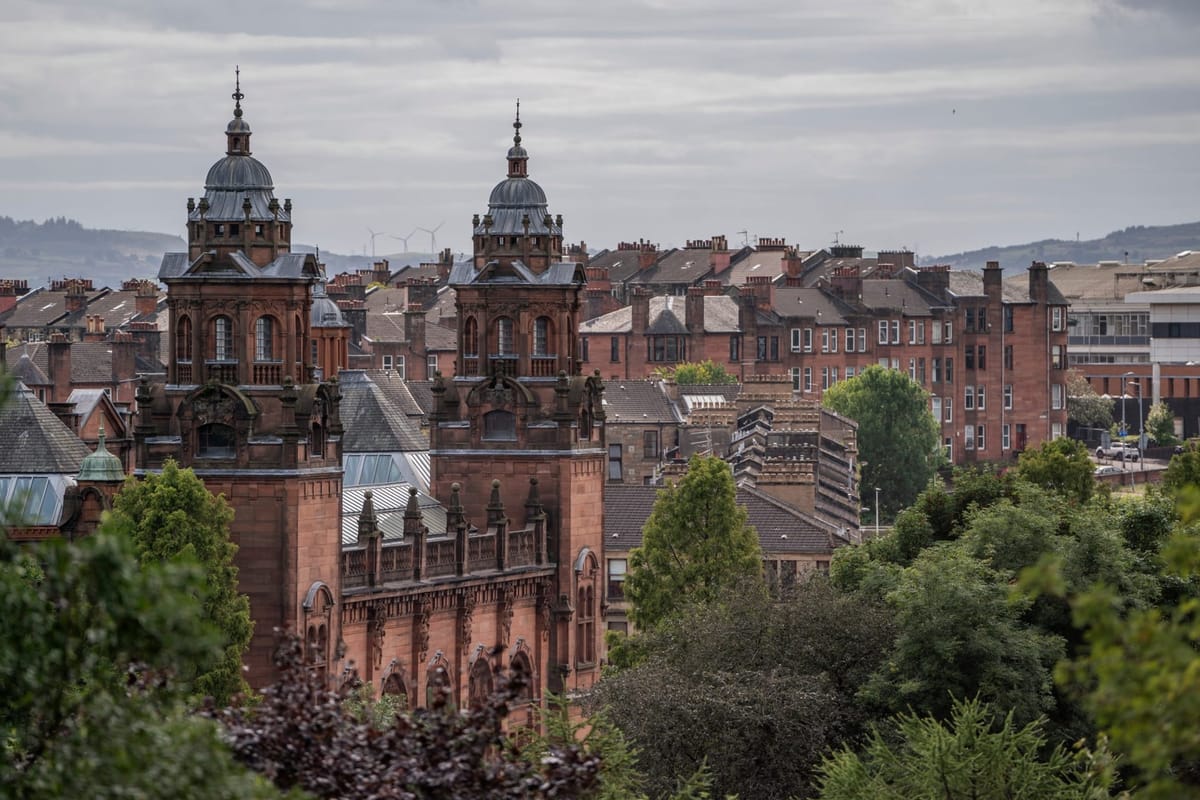
The phenomenon of good schools pushing up local house prices is not a new one. But when it’s comorbid with a house buying system that requires an extra cash lump on top of the deposit, you really are engineering an area for only the wealthy. Meenal calls the amount needed above the home report valuation a “second down payment”, only this one doesn’t go towards equity. It’s a risk, a deal-sweetener that falls straight into the pocket of the seller.
Even adjusting their budget wasn’t enough; now Meenal and her family have switched focus, looking instead to Robroyston and Bishopbriggs, with their Bearsden dream out of reach. Life could be worse for Meenal, but the issue is that £450k does buy you a tidy family home near a top state school, it’s just that to win the bidding you’ll likely need another down payment on top of what you’ve already saved, and then some.
What about the renters?
It’s not just buyers affected by Glasgow’s property purchasing system. Private renters are impacted too. Stella Rooney, Glasgow City Chair of the tenants union Living Rent, says that blind bidding pushes rents up in turn. “Expensive neighbourhoods enable landlords to claim that they are charging open market rate”, she tells me.
Equally, some landlords increase rent in “an attempt to put even more of their investment costs back on to tenants, unwilling or unable to see their investment as a cost they need to pay.” This is a reflection of the enormous amounts of cash sunk into a property when the buyer has paid 20% over a home report value of, say, £200,000. That £40,000 in cash doesn’t go towards equity, and is essentially lost.
As far as I’m aware, this exact combination of pre-determined value plus blind bidding is unique to Scotland, although markets in Canada and Singapore share some features. And in a city like Glasgow, where many areas will be in high demand at once, it can result in wild offers. But it’s not all bad. The Home Report valuation can be seen as an anchor that keeps house prices in check, with a conservative mortgage that banks can be confident in.
Compared to the landscape of pre-2008 bad loans and deranged house prices, it’s an improvement. But Dr O’Brien says it isn’t enough. The home report system is “an “unhelpful halfway house”, he says. Valuing properties isn’t a science, and can vary from surveyor to surveyor, not to mention the influence some agents might have on a valuation. So although buyers don’t need to conduct multiple surveys over the course of the search, as in England, if it leads to the lottery of blind bidding and inflated prices, is it really a fairer system?
The last person I speak to in the course of reporting is Brian Gilmour, director at Indigo Square property letting agents. He’s worked in property for over 30 years and gave evidence to the Scottish Parliament before they introduced home reports in 2008. He tells me that if he had a magic wand, “the first thing [he’d] change would be taking valuations off home reports.”
To Gilmour, lending against these valuations is “like driving looking in the rearview mirror”, because they predetermine a price based on past performance of a market that can change very quickly. So in buoyant markets, this leaves a big gap, which is covered by cash, between how it’s valued and what it’s worth to the highest bidder. And in less ‘healthy’ markets, it can trap people in houses that are valued below the threshold at which a bank will lend, but could have gone on to sell for more than that had the valuation waited until after bids. It’s this issue of a valuation which, as Gilmour concurs with Dr O’Brien, is unscientific being the determining factor for the course of a blind bidding process.
While writing this I’ve wondered whether the discourse around the offers over system reflects an entitlement from some to be able to live in the most desirable areas just because they want to. After all, the blind bidding only happens when estate agents have received multiple notes of interest and send a property to a closing date. In other areas, one has more time to negotiate a fair price. But I think that’s maybe a bit uncharitable. After all, do we really want a system where people who work hard and save for a house will forever be priced out of certain areas despite being technically able to afford the houses? After all, do we want rents in trendy areas dictated not by market value, but by landlords trying to recoup a sunk cost?
I’m happy in Maryhill, it’s a great place. But the dismay I felt knowing that I could afford a mortgage and deposit for a place in Pollokshaws or Partick but just couldn’t keep up with the bidding did leave me a bit scunnered — and I’m one of the lucky ones. In 2021, the Scottish Government was meant to conduct a review into the home report scheme they brought in back in 2008. I’ve tried but I can’t find any record of this ever happening. I wonder what it would say.

